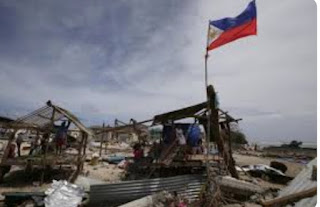The Philippines, a beautiful archipelago in Southeast Asia, has long grappled with the challenges posed by natural disasters, climate change, and socio-economic vulnerabilities. Despite these hurdles, the nation continues to strive for resilience and sustainable development. This blog aims to explore the multifaceted approach needed to foster resilience across the Philippines, focusing on community empowerment, infrastructure development, and environmental conservation.
Communities are the backbone of resilience in any country, and the Philippines is no exception. Empowering local communities through education, disaster preparedness training, and the establishment of robust early warning systems is essential. Encouraging community-driven initiatives and fostering a culture of cooperation can significantly enhance the ability to withstand and recover from adversities.
Investing in resilient infrastructure is crucial for the long-term sustainability of the Philippines. From resilient housing and flood-resistant infrastructure to well-planned urban development and efficient transportation networks, the country must prioritize inclusive infrastructure that can withstand the impact of natural disasters. Integrating innovative technologies and sustainable design principles can further enhance the resilience of the built environment.
The Philippines boasts diverse ecosystems, but they face increasing threats from climate change, deforestation, and pollution. Protecting and rehabilitating critical ecosystems such as mangroves, coral reefs, and forests can bolster the country's resilience. Emphasizing sustainable agricultural practices, promoting renewable energy sources, and implementing effective waste management strategies are vital steps toward ensuring a sustainable and resilient future.
Effective governance and policy frameworks play a pivotal role in strengthening the nation's resilience. Establishing comprehensive disaster risk reduction policies, enhancing regulatory frameworks for sustainable development, and promoting transparency in resource allocation are imperative for fostering a resilient and sustainable Philippines. Engaging in international collaborations and knowledge-sharing initiatives can further enrich the country's approach to resilience-building.
Educating the public about the importance of resilience, environmental conservation, and sustainable development is crucial. Integrating resilience-focused curricula in educational institutions, promoting public awareness campaigns, and encouraging active participation in community resilience-building activities can foster a culture of preparedness and sustainability among the citizens of the Philippines.
As the Philippines continues its journey towards resilience and sustainable development, it must prioritize the holistic integration of community empowerment, infrastructure development, environmental preservation, and effective governance. By adopting a multi-faceted approach and encouraging collaboration among various stakeholders, the nation can pave the way for a brighter, more resilient future, where the well-being of its people and the environment remains at the forefront of progress.
References:
www.csmonitor.com
www.undp.com




The resilience of the Filipinos in facing problems that may affect the country is eminent due to this blog
ReplyDeleteI really hope that Philippines will be one of the highest rated countries for the next years
ReplyDelete